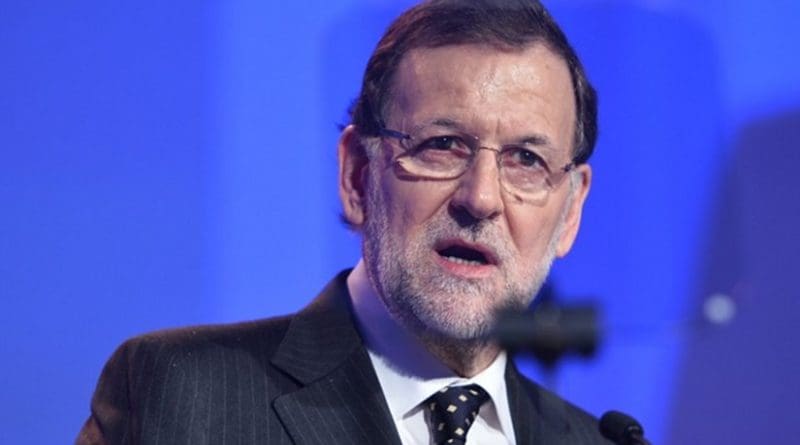Rajoy Commits To Strong Spanish Industrial Sector That Creates Jobs
Spain’s Prime Minister Mariano Rajoy expressed the government’s interest in working with social stakeholders and political groups to reach a State Pact for Industry. He also said that Spain and the European Union share the goal of the industrial sector making up 20% of GDP by 2020.
During the closing event of the workshop entitled “Industry in Spain. Reflections”, organized by the General Union of Workers (Spanish acronym: UGT) trade union in Burgos, Rajoy states that “committing to economic growth and job creation requires backing a strong and competitive industrial sector that must be capable of adapting to a changing and globalized environment and the challenges posed by the digital economy”.
Rajoy pointed out that the industrial sector “is rich in permanent employment, in productivity and in investment in R&D”. In fact, he highlighted, its temporary employment rate is lower than the average and, in the last year, permanent employment has risen by close on 16%, a higher figure than the national average by more than three points. He also remarked that since it is a leading sector in productivity, its average remuneration exceeds other sectors. Employment in industry, he specified, is growing by 3.6%, while the average of the Spanish economy as a whole stands at 2.27%, and 275,000 of those jobs shed have now been recovered.
In order to tackle the changes that the sector must undertake, Rajoy declared that it is necessary “to implement suitable economic policies”. In this regard, he argued that the government’s policy “is good for growth and job creation and for our industry to have the necessary elements to adapt and compete in an increasingly complex, more open and ever-changing world”.
According to Rajoy, industrial policy in Spain must continue down the line of “building” and not undoing what has already been done. “It would be good for us to do this in agreement with all those involved: the government, social stakeholders and political parties”.
Rajoy expressed the government’s interest in agreeing on a Social Pact for Industry or, and this is the same, “all working together in the same direction in order to achieve a strong industrial sector that creates jobs in the globalised economy”.
Rajoy reviewed four fundamental elements of industrial policy: the digital challenge, energy, the new strategic framework and SMEs.
The introduction of digital technologies, he declared, “is a critical element in competition today, and our companies, particularly in industry, must adapt”. To support this digital transformation, the government has approved the Connected Industry Plan 4.0. Furthermore, the government is boosting the rollout of new generation networks so that companies can have physical access to digital infrastructure, he pointed out. By way of example, he mentioned that the Council of Ministers, on 21 April, authorised the calls for proposals for the extension of new generation broadband for a sum of 100 million euros, 58% more than last year.
In relation to energy, Rajoy pointed out that this is a “key issue” for industry, which accounts for some 70% of all electricity consumption. “We must take responsible and balanced decisions”, he argued, “allowing us to meet our environmental targets and the goals for the implementation of new renewable technologies while helping our industry to be more competitive”. It is necessary, he added, for these decisions not to generate energy deficits again.

